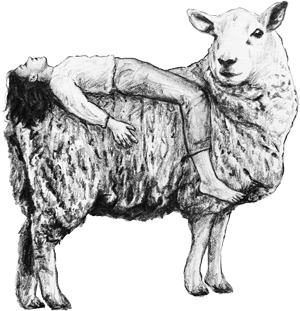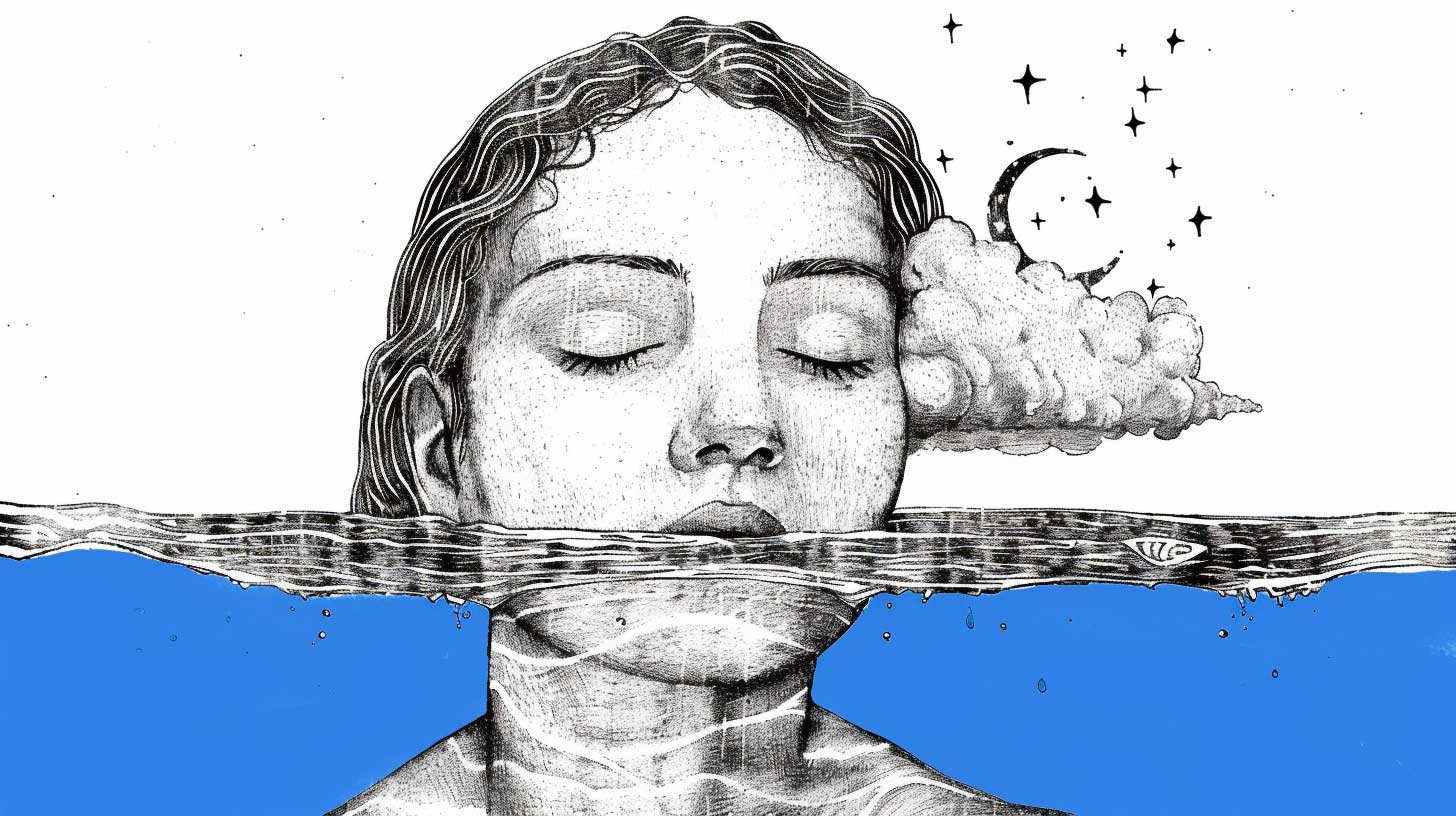What does it even mean to have a vivid dream? Ever woken up from a dream so real that you needed a moment to check whether it actually happened? That's what it is.
These intensely lifelike dreams are called vivid dreams. Many people experience them, and they can be both fascinating and unnerving. This article will explore what they are, their characteristics, reasons behind their occurrence, and their impact on sleep quality. We’ll also provide some practical tips on how to manage and reduce them if they become too overwhelming.
In this article, we will cover:
- What are vivid dreams?
- Causes of vivid dreams.
- Are vivid dreams a bad thing?
- How to stop having vivid dreams?
What are Vivid Dreams?
Vivid dreams are exceptionally clear and memorable dreams that can sometimes be mistaken for reality. They most commonly occur during Rapid Eye Movement (REM) sleep, a sleep stage in which the brain is highly active.
Characteristics of Vivid Dreams:
- Clarity and Detail: They are known for their sharp, detailed imagery and coherent plots.
- Emotional Intensity: These dreams often evoke strong emotions. Those can be positive or negative ones whether they’re joy, fear, or sadness.
- Color and Vividness: They are typically colorful and lifelike. Making them feel like real life experiences.
- Memorability: Unlike ordinary dreams, you are more likely to remember them. The details of them can often even be remembered long after waking.
Possible Reasons Why People Have Vivid Dreams?
Vivid dreams can arise from several factors, each adding a layer to their intensity:
Traumatic Events
Experiencing traumatic events can significantly impact your dreaming patterns, leading to vivid dreams or nightmares. This phenomenon is largely tied to they way our brains process emotions and memories associated with trauma. Often, these vivid dreams serve as a replay of the traumatic event, which can be distressing and intensely emotional.
Such dreams are a common symptom of post-traumatic stress disorder (PTSD). Here you may relive the trauma in your dreams repeatedly. The vividness and frequency of these dreams can disrupt sleep and make it difficult to get restful night’s sleep.
Stress and Anxiety
When we experience stress or anxiety, our brains work overtime during sleep to process these emotions. This can result in having vivid dreams more frequently. These dreams can act as a form of emotional processing or mental rehearsal, intensifying as stress levels rise.
Sleep Disorders
Sleep disruptions, such as those caused by insomnia, sleep apnea or narcolepsy, significantly affect how our brains cycle through sleep stages. Especially the REM stage of sleep. This irregularity often causes intense REM periods, resulting in vivid dreams, a phenomenon known as REM rebound.
Medications
Certain medications, including antidepressants and sleep aids, modify key brain chemicals like serotonin and norepinephrine. These alterations can amplify REM sleep which could lead to enhancing the vividness of dreams and occasionally even leading to nightmares.
Pregnancy
Hormonal changes during pregnancy dramatically alter sleep patterns, increasing both the frequency and vividness of dreams. Pregnant women frequently report disruptions in REM sleep, which can lead to more vivid and memorable dreams.
Heavy Meals
Eating large or rich meals before bed can trigger more vivid dreams. This is due to the body’s increased metabolic activity needed for digestion, which can stimulate more brain activity during sleep. Especially foods that are spicy, fatty, or fried can be hard to digest and lead to discomfort, impacting sleep quality and dream intensity.
Stimulants
Consuming stimulants like caffeine close to bedtime disrupts normal sleep cycles. Caffeine delays sleep onset reduces overall sleep duration and alters the progression through sleep stages. It also shortens the deeper, more restorative stages of sleep. This can be leading to fragmented sleep and vivid dream recall upon waking.
Alcohol Consumption
Although alcohol may seem to help with falling asleep fast, it actually disrupts your patterns. It especially reduces REM sleep in the early part of the night. As the body experiences a REM rebound effect later, dreams can become more intense and vivid. The body tries to compensate for earlier REM sleep loss.
Are Vivid Dreams a Bad Thing?
Vivid dreams themselves are not inherently negative. Sometimes they can even be a productive way to process emotions and memories. Most researchers agree there is no reason for concern or a sign of any major mental health conditions. But they can also have their downside and negative effects such as:
- Nightmares: Vivid dreams that are frightening or unsettling can lead to sleep disturbances, such as nightmares that disrupt sleep.
- Sleep Interruptions: Frequent awakenings from vivid dreams can interrupt the natural sleep cycle. This will result in overall poor sleep and leave you feeling unrested the following morning.
- Emotional Distress: Intense dreams can carry their emotional weight into waking life. Obviously, this can be distressing and impact day-to-day mood and functioning.
How to Stop Having Vivid Dreams?
If vivid dreams are a concern for you, here are several strategies that may help manage them. In general you should keep a good sleep hygiene. In detail this means:
- Regular Sleep Routine: Sticking to a consistent sleep schedule helps regulate your body’s natural sleep-wake cycle. This can lead to fewer vivid dreams.
- Bedtime Ritual: Engage in relaxing activities before bed, such as reading, meditating, or taking a warm bath. This helps calm the mind and prepare it for restful sleep.
- Dietary Adjustments: Avoid heavy meals before bed as they can disrupt your sleep. Foods that are rich or spicy ramp up your metabolism, which might lead to restless sleep and more vivid dreams.
- Coffee and Alcohol: Steer clear of caffeine and alcohol near bedtime. These substances can mess with your sleep cycle and lead to unusually vivid dreams as your brain tries to catch up on REM sleep.
- Daytime Stress Management: Incorporating stress-reduction techniques during the day. For example, yoga, mindfulness or meditation. Also simply thinking and talking about what keeps you up at night can help.
Key Takeaways
- Vivid Dreams meaning: Vivid dreams are very clear and memorable dreams that occur predominantly during REM sleep. They’re known for their sharp imagery, emotional intensity, and lifelike vividness.
- Common Causes: Several factors can trigger vivid dreams, including traumatic events, stress, sleep disorders, certain medications, pregnancy, heavy meals before bed, and consumption of stimulants like caffeine and alcohol close to bedtime.
- Impact on Sleep and Health: While vivid dreams themselves aren’t necessarily harmful, they can lead to sleep disturbances such as nightmares and frequent awakenings. This can disrupt your sleep cycle and impact your overall well-being.
- Avoiding Vivid Dreams: To reduce the frequency and intensity of vivid dreams, maintain a regular sleep routine, create a calming bedtime ritual, make dietary adjustments, and manage stress effectively during the day. Those are all key elements for an overall good and healthy sleep.



